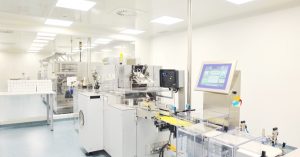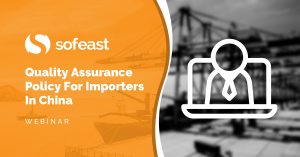A few months ago, I wrote a list of testing labs that has proven helpful to many importers.
Today I want to give a bit of perspective on the different categories of laboratories. Let’s start with the ones you have probably heard of.
1. The big third-party laboratories
Who hasn’t heard of Bureau Veritas, SGS, Intertek, or TUV Rheinland?
Their consumer testing divisions tend to focus on big retailers and on the importers that sell to these retail chains.
They are the best option in these cases:
- New regulations just came out, and you need to talk to an expert and put a program in place.
- You need to certify products that might cause safety hazards. If someone dies because of your product, you want to be able to show a very famous lab’s logo on a report.
They tend to be focused on their big accounts, and not to be well organized to deal with small clients. Often it is hard to find a human being to talk to, let alone get responses to specific questions!
2. Midsize international labs
Midsize testing labs are often better suited to the needs of SMEs.
They usually have the latest equipment, and most of their technical staff comes from the bigger labs. But their product range is more limited.
Here is what Stefan Droste, from Hohenstein Laboratories, wrote to me:
I like to say, that in a small lab I know ALL the time where which sample is and therefore I am able to push a sample, remember if there was something unusual and so on. If you are a small account in one of the big ones your success rate to achieve that will be zero. All in all, the customer service is more direct if you contact a small company, compared to the big labs. In addition I like the high identification of the staff to the lab, they will simply go the extra mile for you, even if you are a small customer. They will call you if something is odd on the sample plan and so on. This extra level of service will be not as cheap (economy of scale…) though.
3. Local laboratories
In China, there are many fully accredited Chinese-owned (sometimes government-owned) laboratories.
Their main advantage is their very low price, even though they might have all the latest equipment.
The downside is their low service level (in terms of providing advice), and sometimes their lack of reliability. I heard several horror stories where the lab would not really do the test, or might not respect the required preparation before the test.
4. Informal labs in client offices
Many importers, when they have a quality office and have reached a certain size, start to buy simple equipment and do the most frequent tests by themselves.
For example, an importer of textile products would purchase a washing machine and a drier, the device to cut & weigh fabrics, and so on.
The turnaround time is much shorter since they often don’t respect the time for preparing samples as per the relevant standard. And costs are typically lower.
Hopefully, someone in their organization is more or less aware of their lack of accuracy. That’s fine if all they want is avoiding big problems. When a result is in the “grey area”, they should send samples to a third-party lab to get a more precise evaluation.
5. Internal labs of big factories
Most large manufacturers have their own internal laboratory — I have been impressed by the professionalism of a few that I have visited. Many midsize factories also have a lab.
In the best case, you (or an inspector you appoint) go to the factory and get access to such an internal lab, with assistance from one of their technicians. You get to run most of the applicable tests for free if you have enough time!
Pay attention to the calibration of the testing equipment, though. It would be easy for a supplier to make its products perform better than they should in such a setting…
—
What do you think? Any experiences to share?
Quality Assurance Policy For Importers In China [Webinar]
What is the 80/20 rule when it comes to QC in China? The answer is building a strong quality assurance policy of your own.
In this webinar, we’re going to explore key challenges facing importers from China, and the elements that compose a really solid, effective quality assurance policy.
Improving your quality assurance will help avoid poor quality products from hurting your business. Hit the button below to register to watch the webinar!


